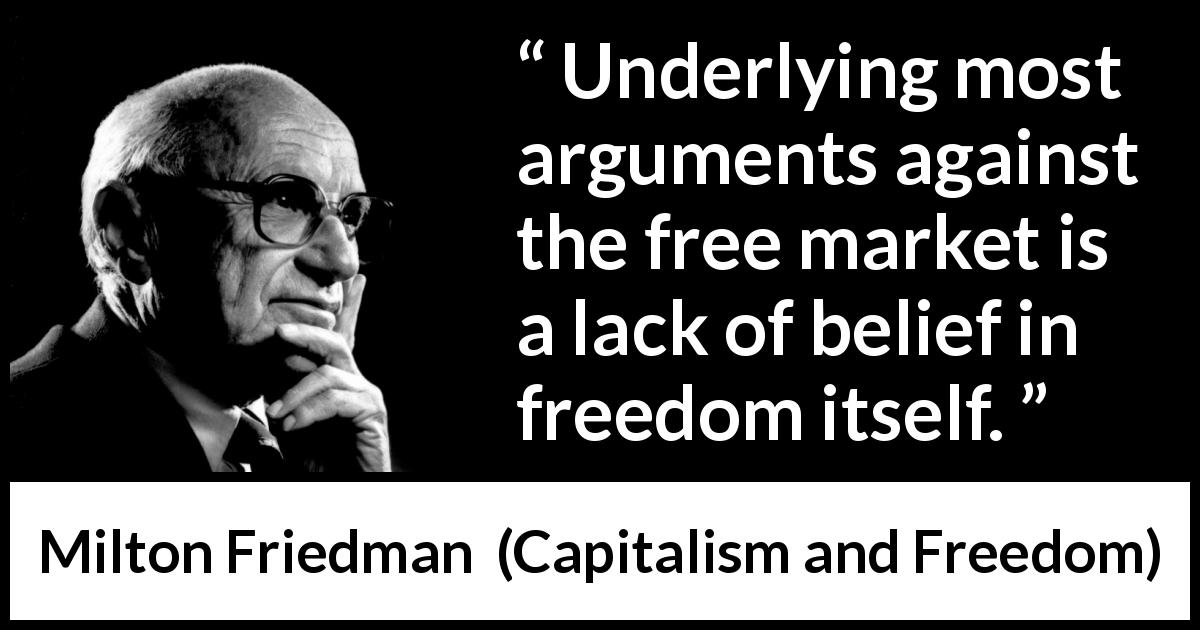



Though there is underinvestment in human capital (in terms of spending at technical and professional schools), it would be foolish of the government to provide free technical education. The author believes that everyone, in a democracy, needs a basic education for citizenship. The policy advocated here is vouchers which students may use for education at a private school of their choice. Many reasons for this discrepancy are discussed. Friedman uses concrete evidence from his own research, demonstrating that the rise in government expenditures results in a roughly equal rise in GDP, contrasting with the Keynsian multiplier theory. Federal government expenditures do not make the economy more stable, but have failed to balance out recession, introduced inflation, expanded government control, and failed to lighten tax burdens. Fiscal Policyįriedman argues against the continual government spending being used to "balance the wheel" and help the economy to continue to grow. Friedman says that this is the only true solution to the balance of trades problem. This chapter advocates the end of the Bretton Woods system in favor of a floating exchange rate system and the end of all currency controls and trade barriers, even "voluntary" export quotas. International Financial and Trade Arrangements Friedman proposes that the Federal Reserve have a consistent rule to increase the money supply by 3-5% annually. Far from acting as a stabilizer, the Federal Reserve failed to act as it should have in several circumstances. He discusses the evolution of money in America, culminating in the Federal Reserve Act of 1913. The Role of Government in a Free SocietyĪccording to the author, the government of a liberal society should enforce law and order and property rights, as well as take action on certain technical monopolies and diminish negative "neighborhood effects." The government should also have control over money, as has long been recognized in the constitution and society iii. Additionally, economic freedom is important, since any "bi-laterally voluntary and informed" transaction must benefit both parties to the transaction. He argues that, with the means for production under the auspicies of the government, it is nearly impossible for real dissent and exchange of ideas to exist. In this chapter, Friedman promotes economic freedom as both a necessary freedom in itself and also as a vital means for political freedom. The Relation between Economic Freedom and Political Freedom Friedman opts for the continental European, rather than American, definition of the term. The introduction lays out the principles of Friedman's archetypal liberal, a man who supports limited and dispersed governmental power. Capitalism and Freedom is a book by Milton Friedman published in 1962.


 0 kommentar(er)
0 kommentar(er)
